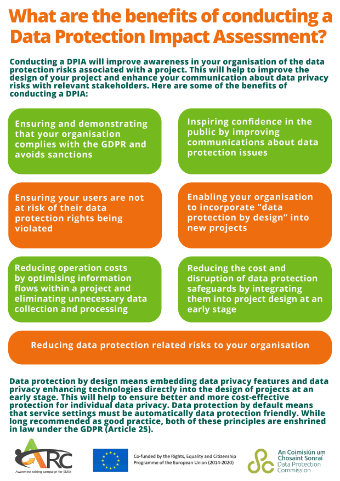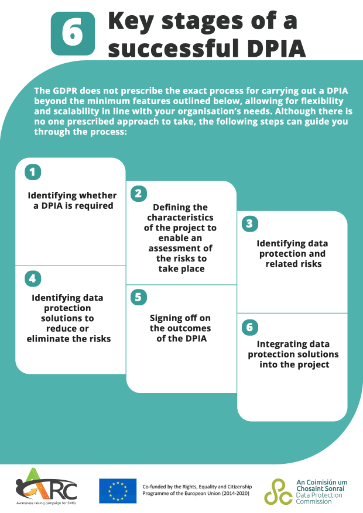When UCD, or someone on behalf of UCD collects, stores or uses (i.e. processes) personal data, the individuals whose data are processed may be exposed to privacy risks. It is important that personal data is handled legally, securely, efficiently and effectively to deliver the best possible protection for data.
This risk-profile needs to be determined for each personal data processing operation or project carried out, taking into account the complexity and scale of data processing, the sensitivity of the data processed, and the protective measures required. It is important to identify the risk level of personal data processing operations on a case-by-case basis and to develop and implement risk mitigating measures from the outset.


